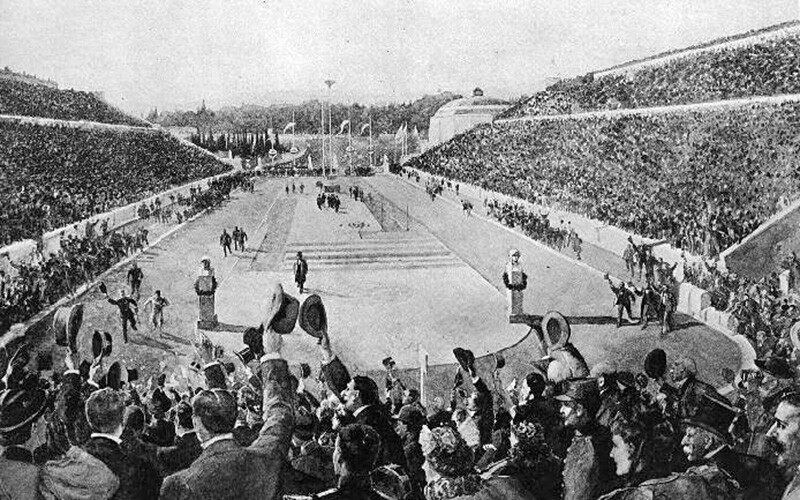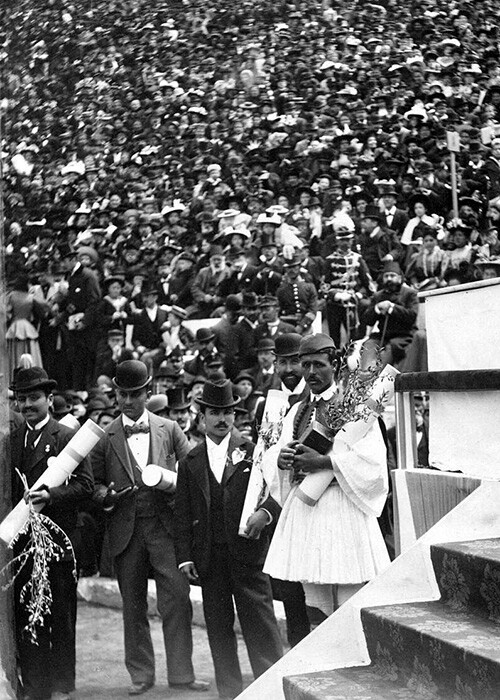When you start seeing the promotional hype for the Summer or Winter Olympics, have you ever wondered, "When did the Olympics start?” The answer is, “It depends.”
Let’s start with some interesting trivia. Did you know it’s only been since 1992 that the Olympics have occurred every other year, swapping between summer games and winter games? This allows athletes time to train and the host countries time to prepare. Prior to 1992, however, it was tradition to hold the winter and summer games in the same year, with a four-year gap between.
Also, did you know that 2020 was not the first time the Olympics were postponed? The Olympics have only been canceled during two other events: World Wars I and II.
So how did this international tradition start?
When Did the Olympics Start?
The Olympic Games were originally a contest in ancient Greece in which the Greek city-states competed against one another for glory. Held every four years, they were part of a festival to honor the Greek god Zeus. The modern Olympics are a direct throwback to the classical Olympics of ancient times, and they also began in Greece!

With the popularity of ancient history, other countries had held their own smaller contests inspired by the ancient Olympics over the years. However, the idea for an international competition under that name was not proposed until 1892. Two years later, the International Olympic Committee was formed, and plans and preparations began for the first modern Olympic Games.
The year was 1896, just four years short of the new century. Participating athletes and supporters from 14 different countries gathered in Athens for the first international Olympic Games, a tradition that would continue to the present. The event was a festival, with 280 athletes from the participating nations joined by around 60,000 spectators.
What Is the Oldest Olympic Sport?
The first known sport in the classical Olympics in Ancient Greece was foot racing. Track and field competitions, which included foot races, were also part of the first modern Olympics. Running competitions are still a part of the Olympics today.

The first modern Olympics also included competitions in swimming, cycling, gymnastics, weightlifting, wrestling, shooting, fencing, and tennis. Today, the Olympic Games have 67 sports between both the summer and winter games; however, this number may change. Sports have been added and removed over the years, changing with popular trends and technological advancements.
The tradition of holding the Winter Olympic Games began in 1924 and brought with it a new selection of sports. For many years, the location of the Winter Games was limited by climate and season.

Who Won the First Olympics?
The first modern Olympics, much like its ancient inspiration, featured only male competitors. The idea of opening sports competitions to women would not be realized in the Olympic Games until the 1900 games in Paris.
The participants in the first Olympic Games were from 14 countries: Australia, Austria, Bulgaria, Chile, Denmark, France, Germany, Great Britain, Greece, Italy, Hungary, Sweden, Switzerland, and the United States.
The first champion of the modern Olympic games was James Connolly, an athlete from the United States. He took home the gold medal in the long jump competition.
The winner of the first modern Olympic marathon—a legacy of the foot races of the ancient Olympics and a tribute to the story of Pheidippides—was a Greek athlete named Spyridon Louis. This endurance race was the main event of the 1896 Olympic Games, and Greece’s victory was widely celebrated, with Louis becoming a national hero for earning first place.
Are You Related to an Olympian?
Do you know if you are related to a famous Olympian? Find your Olympic connection with FamilySearch's Olympic experience! You can sign in to the shared family tree with a free FamilySearch account to see if there are any famous athletes among your ancestors. You can also see which Olympian could be your look-alike!
Share Your Olympic Stories!
Have you or someone in your family ever been to the Olympics? Do you have memories of watching it live on TV? Do you play a sport and dream of one day achieving the gold, or do you just enjoy the athletic competitiveness of playing? Share your memories on FamilySearch Memories for future generations to enjoy.
FamilySearch Memories is a place where you can store photos, audio, stories, and other memories for free. The memories you add here will be available for your family to enjoy and learn from for generations to come. All you have to do is create an account and start adding your memories today!
Related Articles
At FamilySearch, we care about connecting you with your family, and we provide fun discovery experiences and family history services for free. Why? Because we cherish families and believe that connecting generations can improve our lives now and forever. We are a nonprofit organization sponsored by The Church of Jesus Christ of Latter-day Saints. To learn more about our beliefs, click here.




